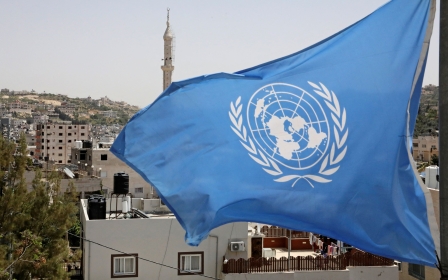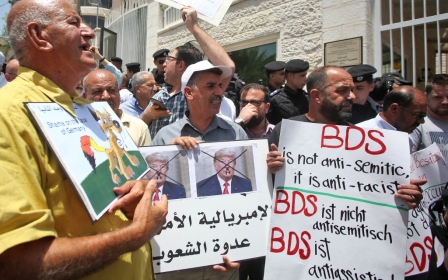UK universities urged to drop IHRA definition over false antisemitism claims

An influential academic association representing lecturers specialising in Middle Eastern studies has called on UK universities to drop a controversial definition of antisemitism endorsed by the British government because of concerns it is being used to target students and staff critical of Israel.
A new report released on Wednesday and co-authored by the British Society for Middle Eastern Studies (BRISMES) and the European Legal Support Centre (ELSC), found that cases of staff and students being accused of antisemitism in universities that have adopted the definition were "undermining academic freedom and freedom of expression" on campuses.
More than 200 universities, colleges, and higher education providers in the UK have adopted the definition proposed by the International Holocaust Remembrance Alliance (IHRA).
In 2020, Gavin Williamson, who was then education secretary, threatened universities with funding cuts if they failed to adopt the definition. Critics of the IHRA definition say it conflates antisemitism with criticism of Israel in a number of accompanying examples.
Based on 40 cases reported to the ELSC, the report found that antisemitism complaints against academics, student unions, students, and societies led to universities cancelling events critical of Israel and "sustained levels of monitoring and surveillance of complainants" including the recording of student speeches and staff lectures and the monitoring reading lists, course material, and social media posts.
New MEE newsletter: Jerusalem Dispatch
Sign up to get the latest insights and analysis on Israel-Palestine, alongside Turkey Unpacked and other MEE newsletters
Describing the IHRA definition as "not fit for purpose", BRISMES and the ELSC said it was harming the mental health, reputation, and career prospects of students and staff who had been falsely accused of antisemitism.
The report also noted that "certain groups of staff and students, who are under-represented and marginalised within UK academia" particularly Palestinian, Black, and ethnic minority are targeted with complaints that rely on the IHRA definition.
Neve Gordon, the chair of BRISMES's Committee on Academic Freedom and professor of human rights at Queen Mary University in London, said the definition had been used as a "tool to undermine" anyone who voices criticism of Israel.
"We began noticing a pattern of what appeared to be spurious accusations which are causing considerable stress and reputational damage to individuals in academia and decided to investigate the matter," said Gordon.
"What has been framed as a tool to classify and assess a particular form of discriminatory violations of protected characteristics has instead been used as a tool to undermine and punish protected speech and punish those in academia who voice criticism of the Israeli state’s policies."
The report noted that in most cases which reached a formal hearing, staff had been "exonerated of all charges...[and that] every allegation of antisemitism was found to be false."
The report found that the definition had a "chilling effect" on staff and students, leading to deterring "individuals from speaking about or organising events that discuss Palestine out of fear that they will be subject to complaints, or else, will face considerable bureaucratic hurdles and even costly action".
Giovanni Fassina, director of the ELSC, added: "Not only does the documented pattern call into question the compliance of UK universities with their legal obligation to protect academic freedom and freedom of expression, but it is leading universities away from their core mission of nurturing critical thought, facilitating unhindered research, and encouraging wide-ranging debate."
The BRISMES and the ELSC called on the UK government, universities, and the National Union of Students, which represents students across the UK, to drop its endorsement of the IHRA.
Both bodies also urged the Office for Students (OFS), Britain's regulator for Higher Education, to stop recommending the IHRA definition.
The OFS did not comment at the time of writing.
A Department of Education spokesperson defended the IHRA and described it as a "vital tool in tackling antisemitism".
"A report by the independent task force on antisemitism in higher education showed no universities that had adopted the definition said it had in any way restricted freedom of speech or academic research,” they said.
Middle East Eye delivers independent and unrivalled coverage and analysis of the Middle East, North Africa and beyond. To learn more about republishing this content and the associated fees, please fill out this form. More about MEE can be found here.




